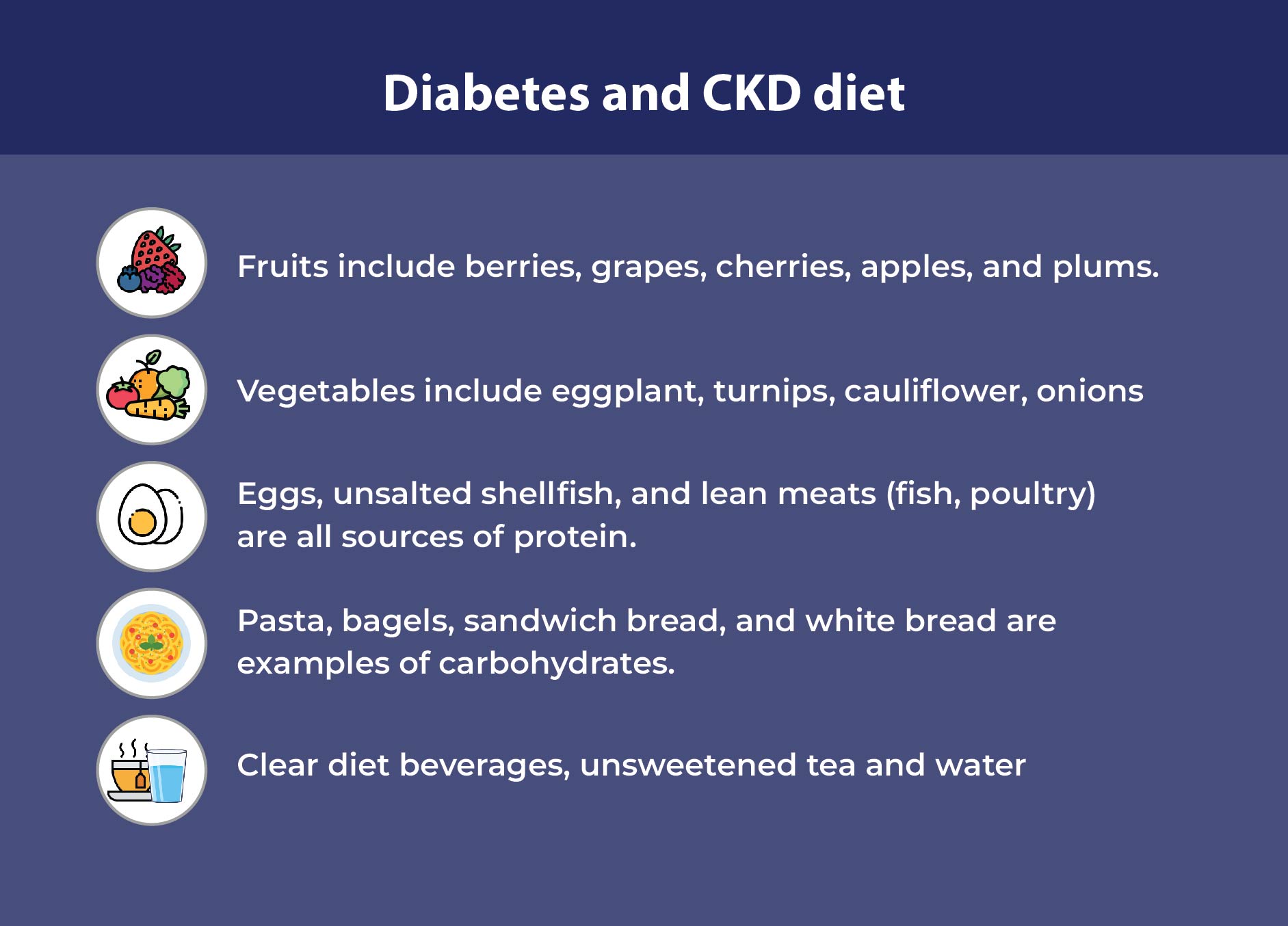Diabetic Kidney Disease (Diabetic Nephropathy)
Diabetic nephropathy, another name for diabetes kidney disease, is a significant consequence of both type 1 and type 2 diabetes. The ability of the kidneys to carry out their typical function of eliminating waste materials and extra fluid from the body is directly impacted by diabetic nephropathy. However, by leading a healthy lifestyle and properly controlling your diabetes and high blood pressure, this can be avoided or prevented.
The sensitive filtering system in the kidneys is slowly damaged by this illness, which does not advance quickly. Early diagnosis and therapy have been shown to be effective in stopping or slowing the progression of the disease, hence lowering the risk of complications.
If this is not treated effectively, it can progress to end-stage renal disease, often known as kidney failure. One of the life-threatening disorders is kidney failure. Dialysis or kidney transplants are the two available treatments for renal failure.
If this is not treated effectively, it can progress to end-stage renal disease, often known as kidney failure. One of the life-threatening disorders is kidney failure. Dialysis or kidney transplants are the two available treatments for renal failure.
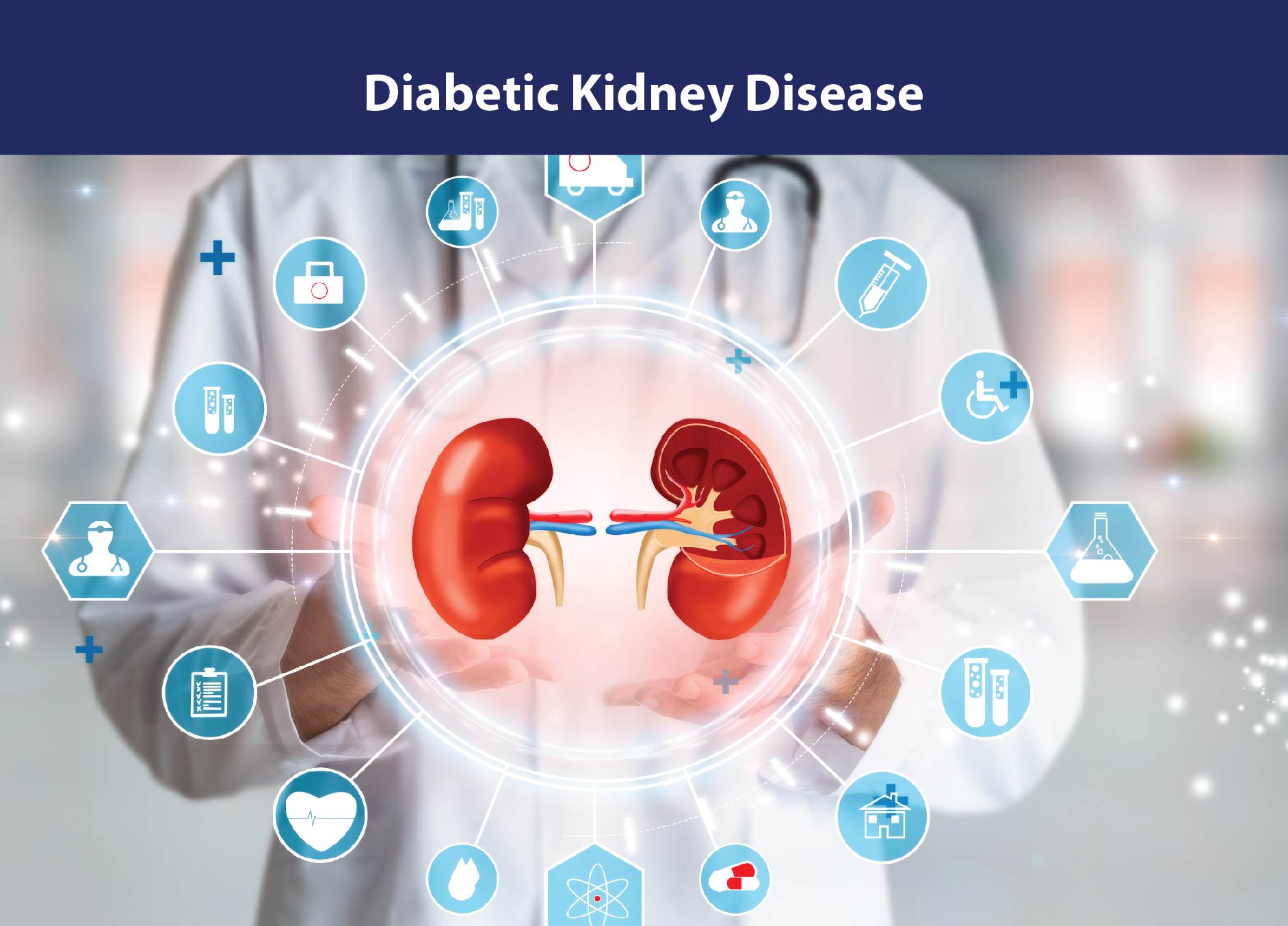
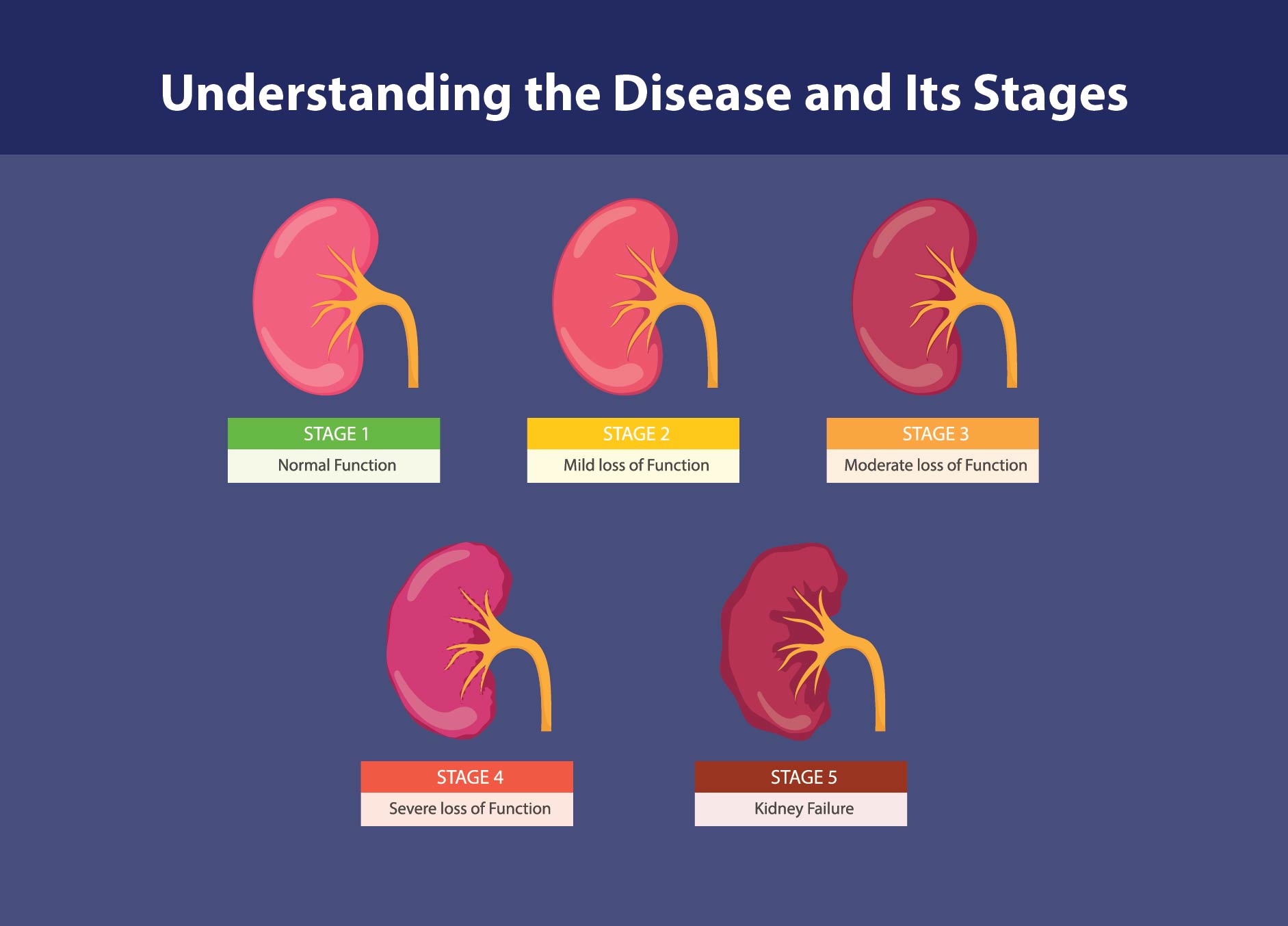
Understanding the Disease and Its Stages
The stages of kidney disease are classified depending on the GFR, which indicates the percentage of normal kidney functioning.
- Stage 1: Kidney damage is present but kidneys function normally with a GFR of 90% or above.
- Stage 2: A GFR of 60-89% and kidney damage with some loss of function
- Stage 3: A GFR of 30-59% and mild to severe loss of function
- Stage 4: A GFR of 15-29% and severe loss of function
- Stage 5: A GFR less than 15% and kidney failure
Symptoms, Treatment, and Diet Management
Early kidney disease signs and symptoms are difficult to spot, but later-stage signs and symptoms include:
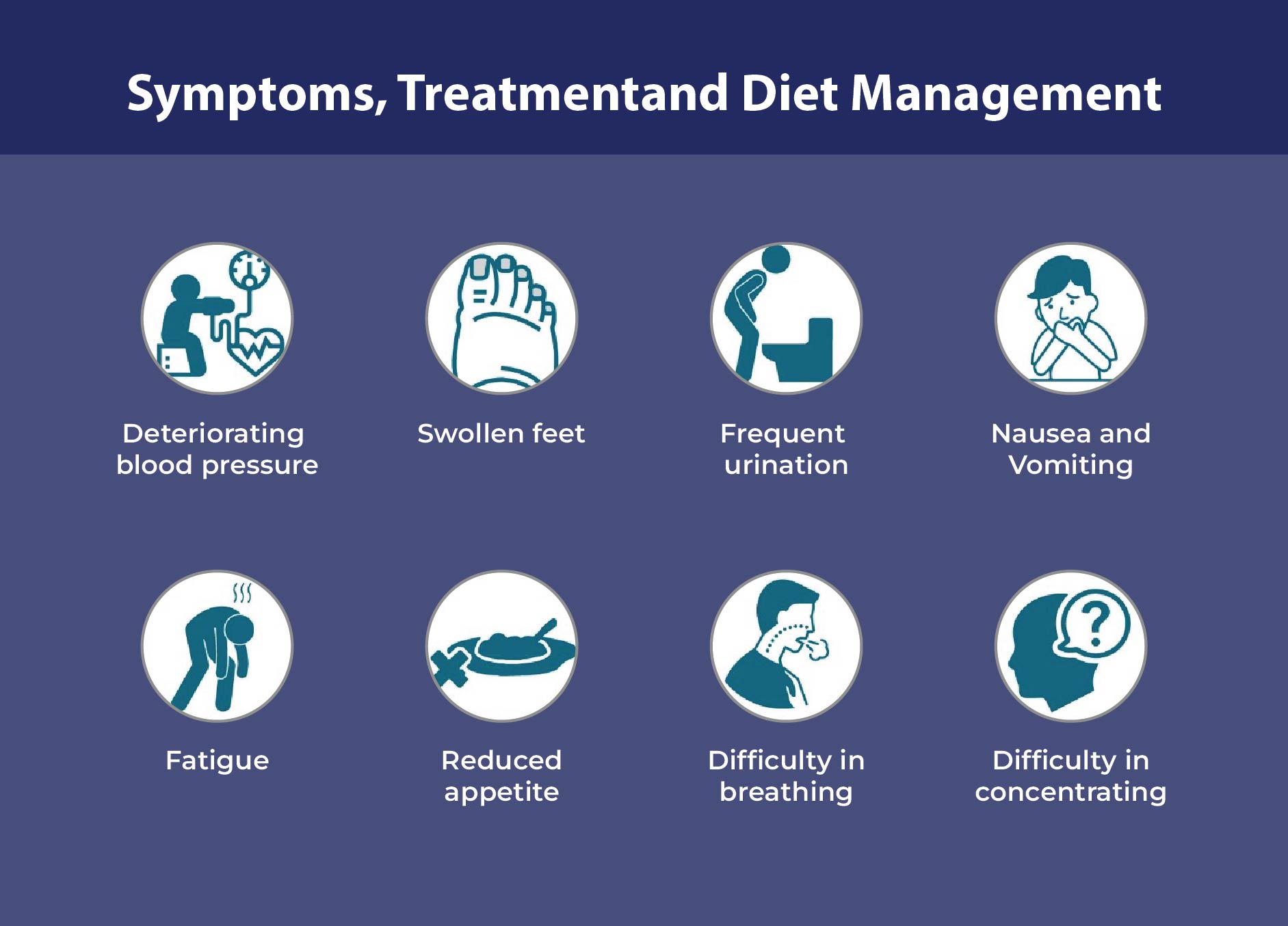
Get in touch with Dr. Vijay Patel, the top kidney specialist in Mumbai, for help and prompt disease management if you encounter any of the aforementioned symptoms,
Diabetic Kidney Disease Treatment
Treating and controlling your diabetes and high blood pressure (hypertension), which includes diet, lifestyle changes, pharmaceutical drugs and exercise, is of utmost importance in the treatment of diabetic nephropathy. Good blood sugar and hypertension control can delay or avoid renal failure and other consequences related to it.
Prescription medicines:
Medication management may be part of the treatment approach for diabetic nephropathy in its early stages.
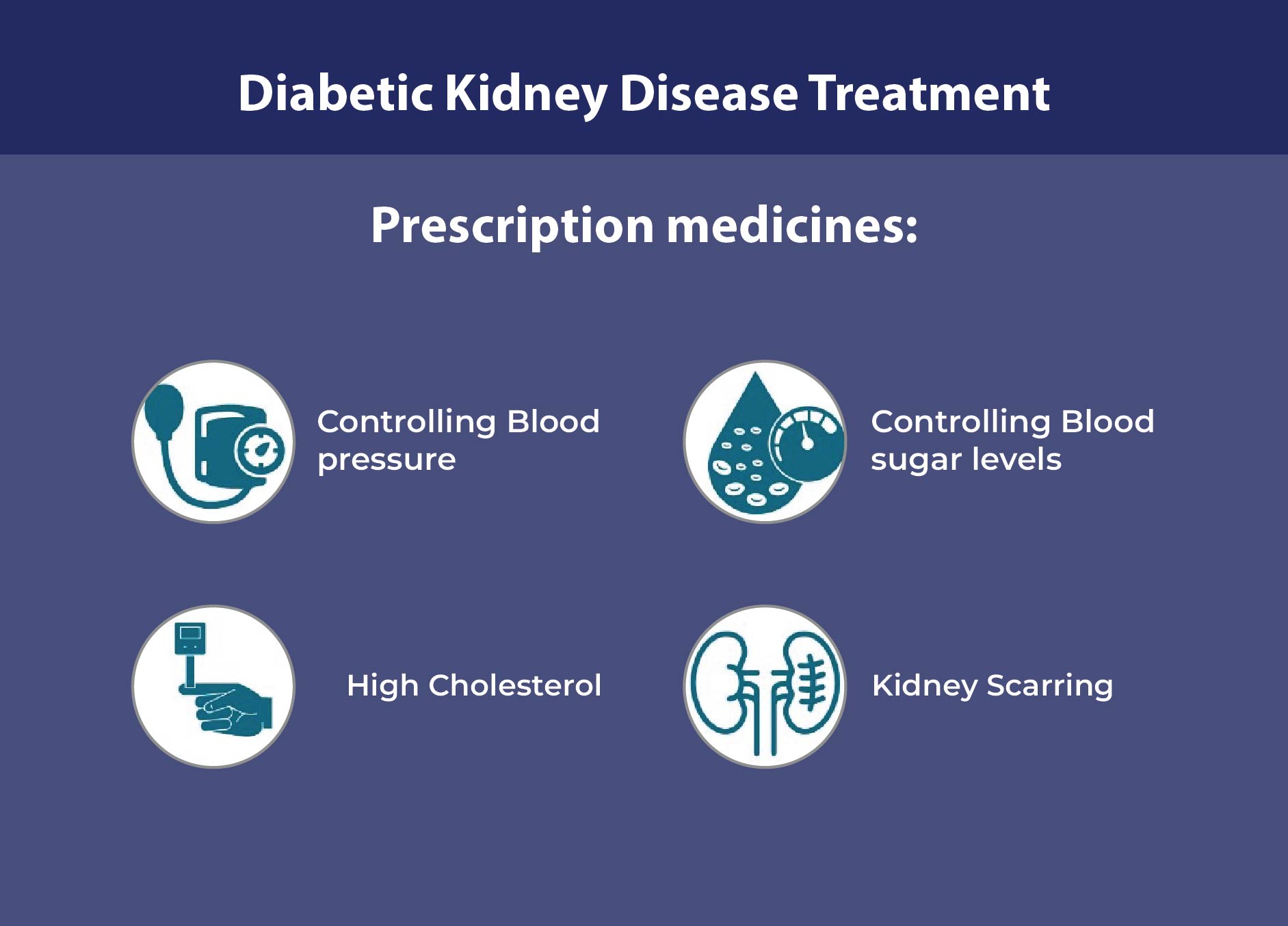
- Controlling Blood pressure: Angiotensin-converting enzyme (ACE) inhibitors and angiotensin 2 receptor blockers (ARBs) are two types of drugs used to treat high blood pressure.
- Controlling Blood sugar levels: Medications can assist diabetic nephropathy patients manage excessive blood sugar levels. Fortamet, Glumetza, and other brands of metformin increase insulin sensitivity while reducing hepatic glucose production. By delaying digestion and promoting insulin production in response to rising blood glucose levels, glucagon-like peptide 1 (GLP-1) receptor agonists aid in lowering blood sugar levels. Increased glucose excretion in the urine is caused by SGLT2 inhibitors, which prevent glucose from returning to the bloodstream.
- High Cholesterol: Statins, known as cholesterol-lowering drugs are used in the treatment of high cholesterol and decrease the presence of protein in the urine.
- Kidney Scarring: Finerenone (Kerendia) is believed to interfere with the molecular pathways that cause tissue damage and inflammation in diabetic nephropathy. Research indicates that the medicine may reduce the risk of renal function loss, kidney failure, cardiovascular death, non- fatal heart attacks, and heart failure hospitalisation in individuals with chronic kidney disease associated with type 2 diabetes.
To determine if your kidney disease is stable or progressing, your doctor might advise periodic follow-up testing.
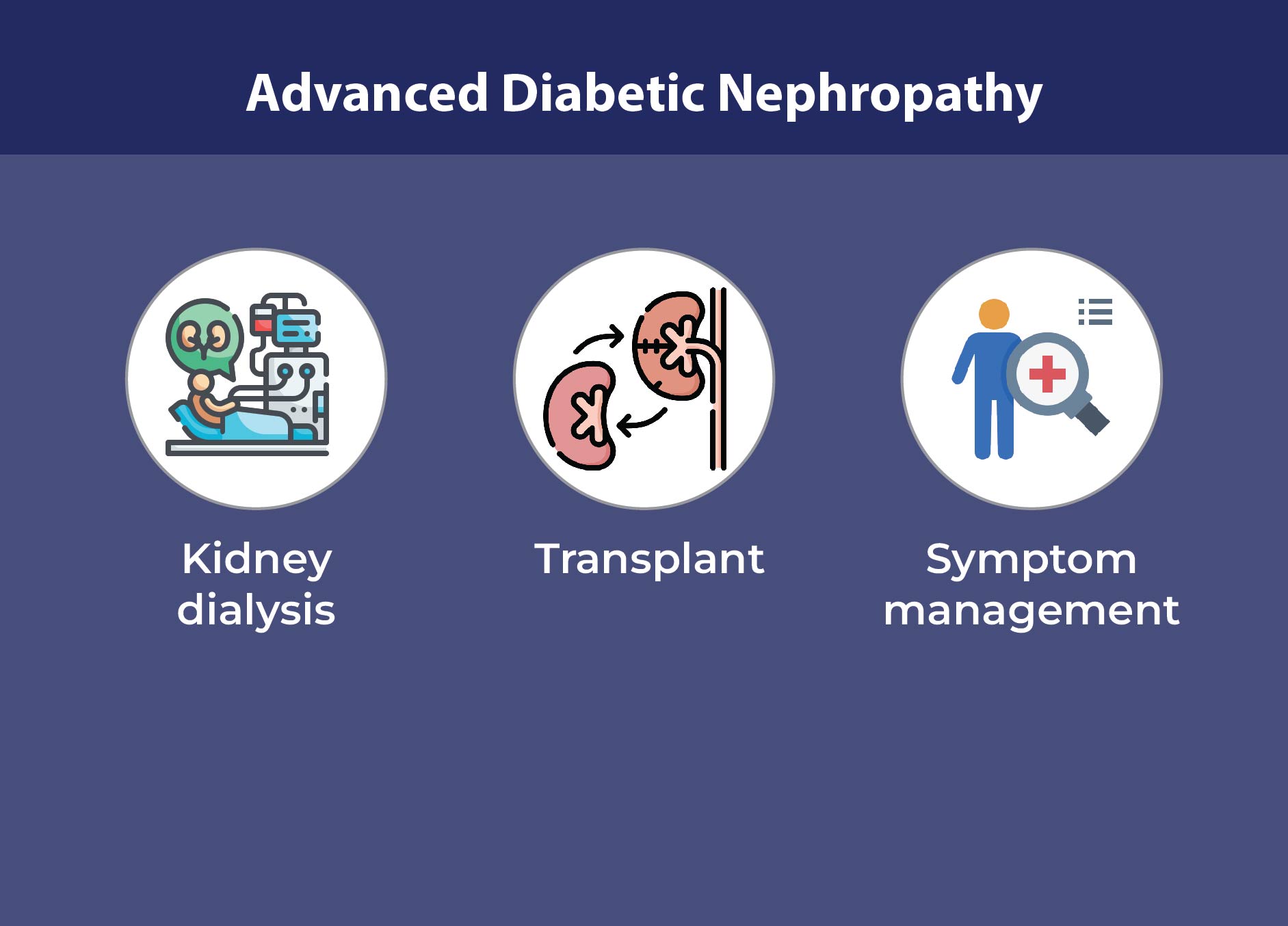
Treatment for advanced diabetic nephropathy
Your doctor will discuss the options for advanced care like restoring the kidney function or improving your comfort if your disease has progressed to kidney failure (end-stage kidney disease). The options are listed below as:
- Transplant: Kidney transplant or a kidney-pancreas transplant is considered the most suitable option in certain cases. If you and your doctor agreed to proceed with this procedure, further evaluation to determine your eligibility for the surgery is done.
- Symptom management: If your do not opt for either of the above listed options, your life span would be typically only a few months and certain treatments can be given to make you feel at ease.
Diabetes and CKD diet
Listed below are some examples of foods that people with diabetes and CKD can eat. Your dietician can provide further guidance and assistance with meal planning:
- Fruits include berries, grapes, cherries, apples, and plums.
- Vegetables include eggplant, turnips, cauliflower, onions
- Eggs, unsalted shellfish, and lean meats (fish, poultry) are all sources of protein.
- Pasta, bagels, sandwich bread, and white bread are examples of carbohydrates.
- Clear diet beverages, unsweetened tea, and water
The following ways your CKD diet and diabetes diet can work together: Try apple or grape juice for your kidneys if you drink orange juice to treat low blood sugar. The blood sugar increase will occur even with significantly less potassium.
